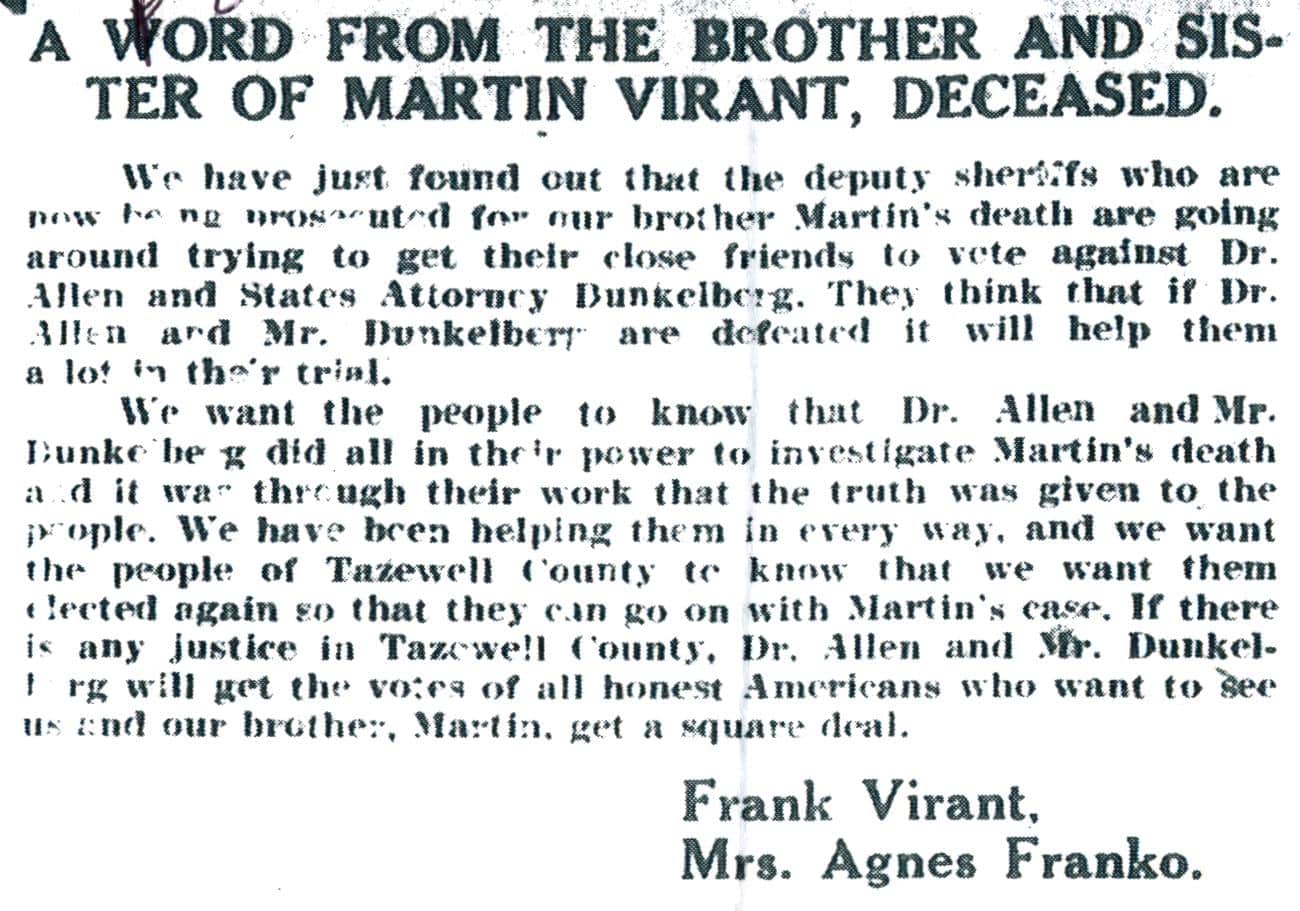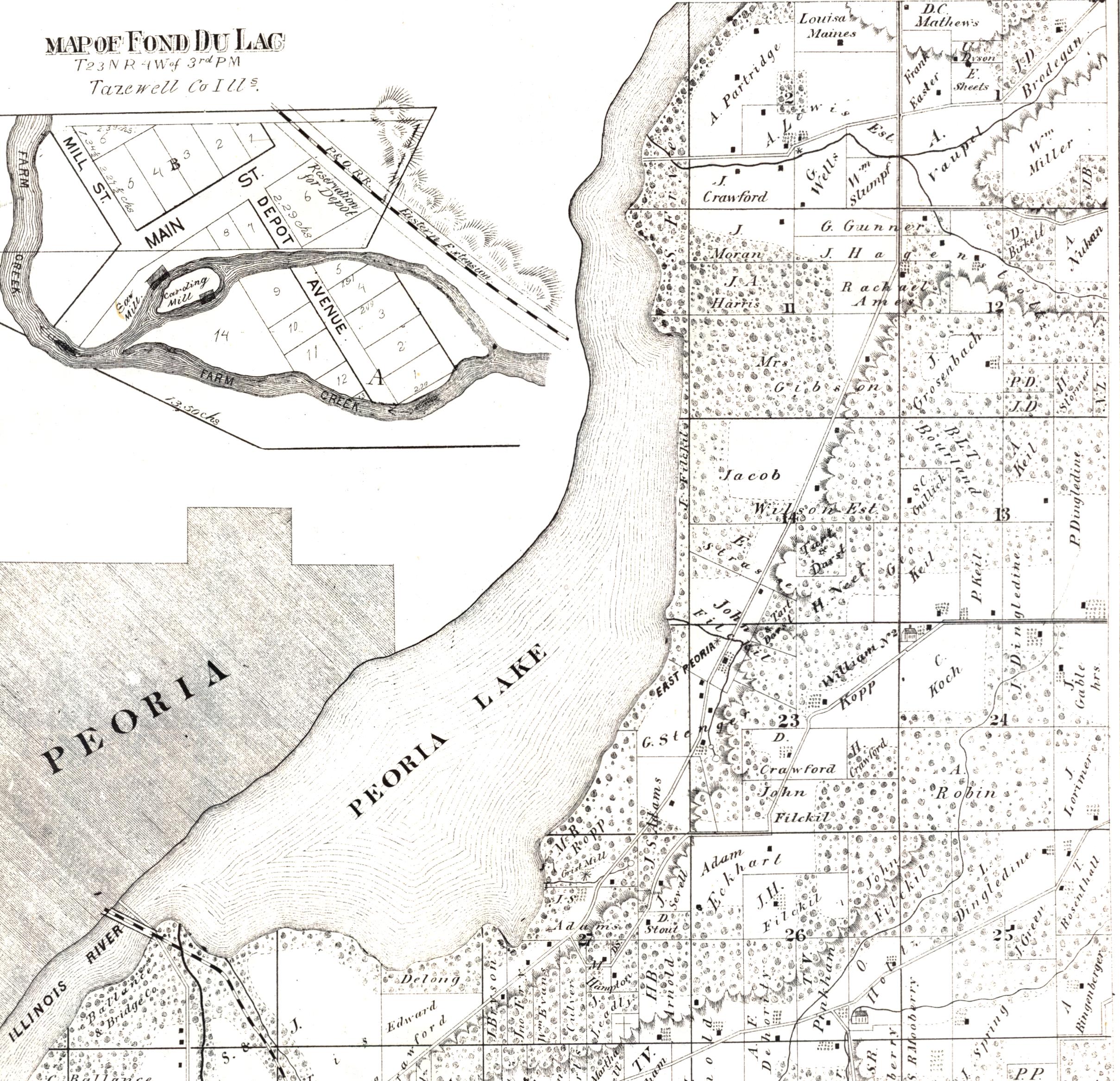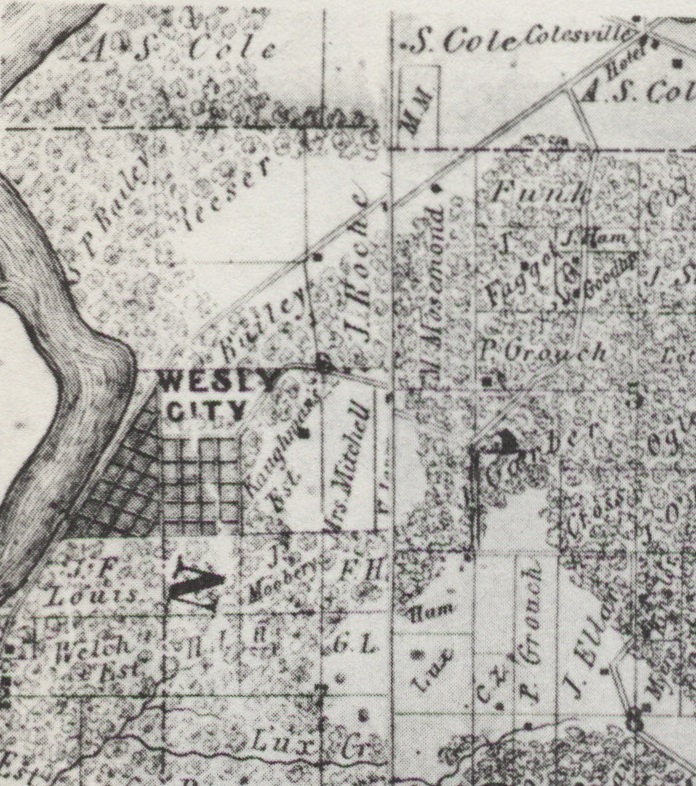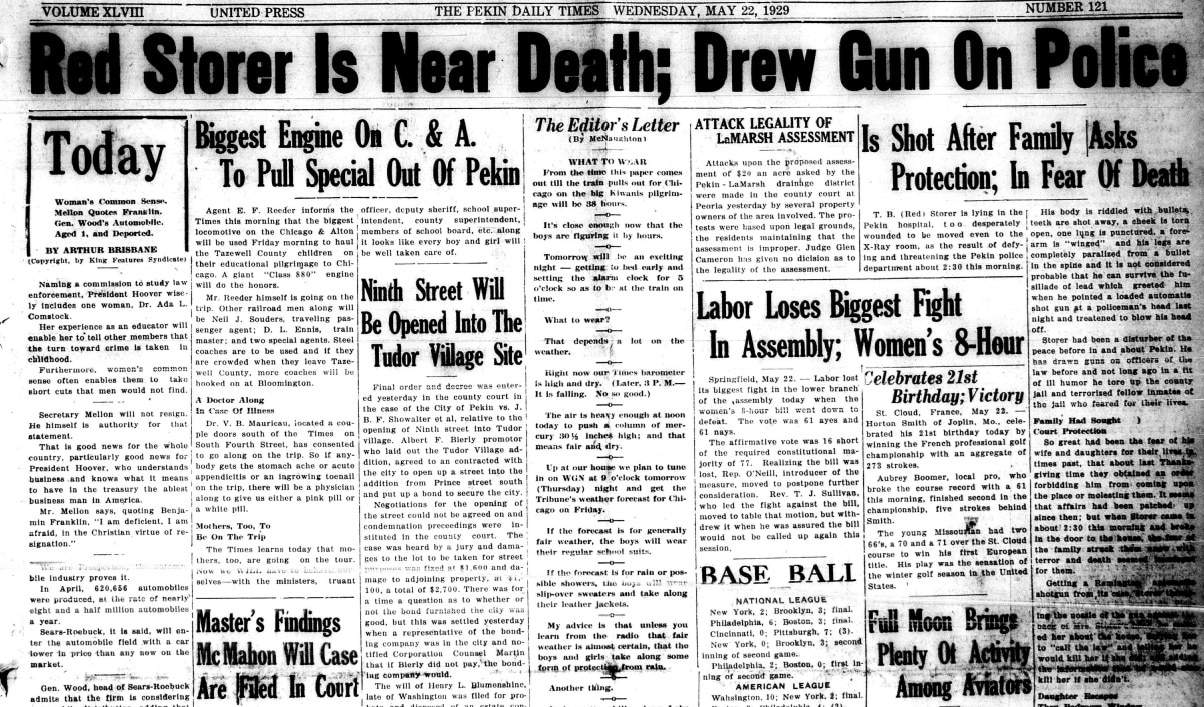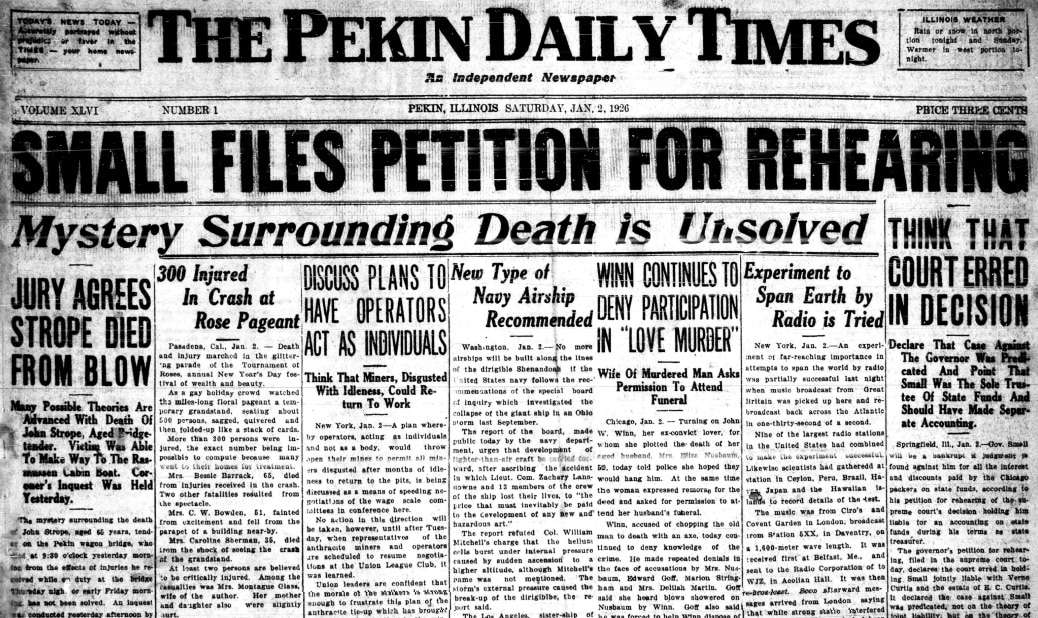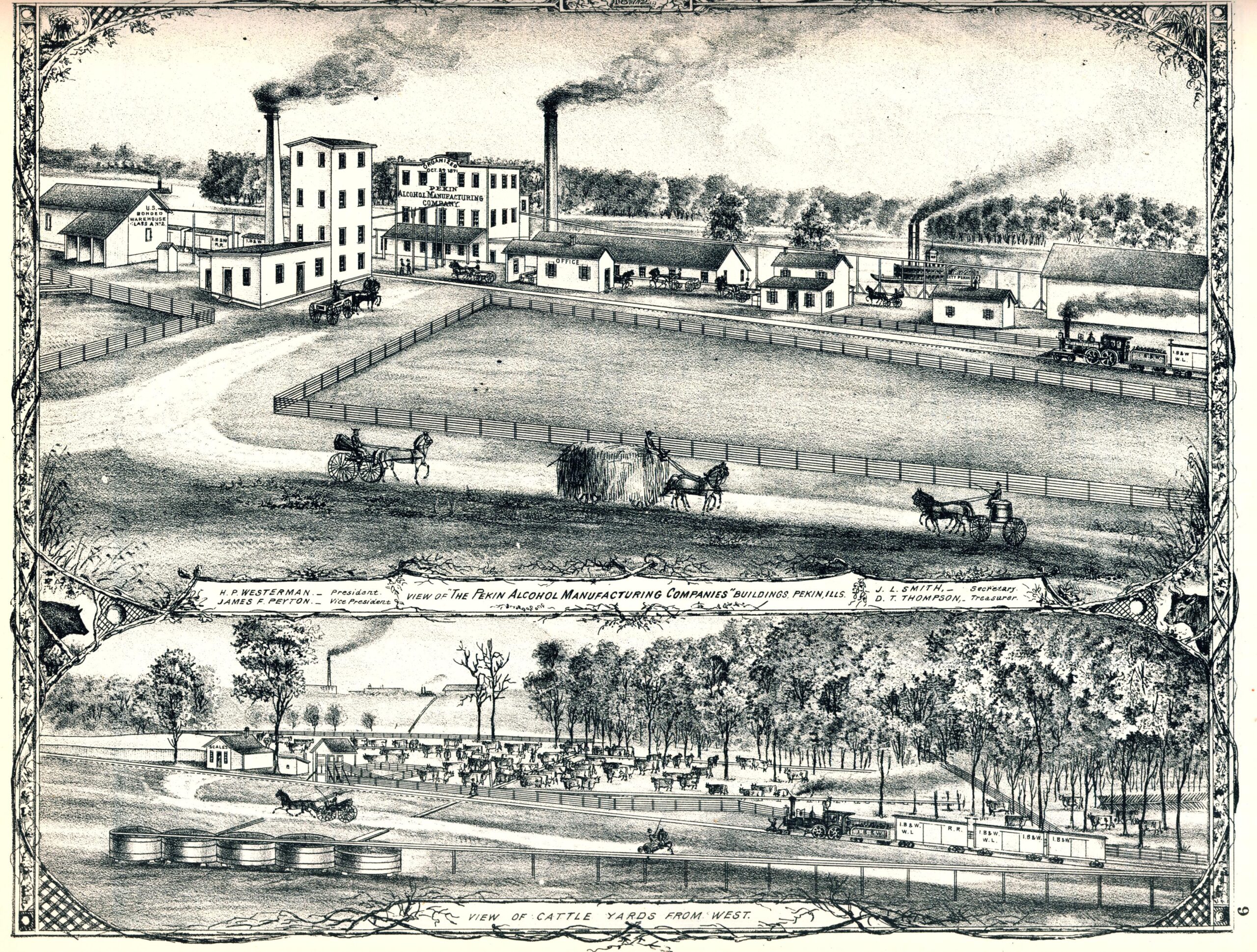With this post to our Local History Room weblog, we continue our series on a pair of sensational deaths that occurred in Pekin, Illinois, during the Prohibition Era. The Local History Room columns in this series, entitled “The Third Degree,” originally ran in the Saturday Pekin Daily Times from Sept. 15, 2012, to March 2, 2013.
THE THIRD DEGREE
By Jared Olar
Library assistant
Chapter Eleven
The deputies prepare their defense
Even prior to the manslaughter indictments of Tazewell County Sheriff’s deputies Ernest L. Fleming, Charles O. Skinner and Frank Lee for the “third degree” beating death of jail inmate Martin Virant, the deputies and their attorneys, Jesse Black and W. J. Reardon, had already begun to plot out their defense strategy.
Black gave a hint of that strategy when he issued a broadside attack against Tazewell County Coroner Arthur E. Allen in the St. Louis Post-Dispatch in early September, accusing Allen of inflaming the public against his clients and boasting that the deputies would be exonerated.
On Oct. 24, 1932, Black and Reardon filed a motion for a change of venue. Their motion was expected, because Virant’s murder was one of the most sensational crimes in Tazewell County’s history, and inevitably had dominated the front pages of all the newspapers in the Pekin area for almost the entire month of September 1932.
Judge Joseph E. Daily heard arguments for and against the motion at the Tazewell County Courthouse on Oct. 31.
“In the first exhibit offered by Attorney Black,” reported that day’s Pekin Daily Times, “was a front page of an issue of the Pekin Daily Times, which paper the court was again reminded, had a wide circulation thruout Tazewell county, containing articles relating to Virant’s death, which the attorney contended tended to create a prejudice against the defendants, and also containing alleged testimony which would not be admitted by a court of record.”
Judge Daily took the matter under advisement, saying he would not issue his decision until Nov. 12. Not just the gravity of the case, but also the fast-approaching general election, gave him a good reason to delay ruling on the question. In the autumn of 1932, the Great Depression was in full swing, and incumbent Republican President Herbert Hoover was facing a formidable challenge from Democratic candidate Franklin D. Roosevelt.
But while action on the case paused in the courtrooms, the accused deputies continued efforts in their own defense. While their attorneys had charge of legal strategy, the deputies opted for an unorthodox and somewhat cynical angle of counterattack: taking their cause into the political ring, the deputies quietly but determinedly campaigned for the defeat at the polls of Coroner Allen and State’s Attorney Louis Dunkelberg.
In the case of Allen, their campaigning for his defeat seems to have been simply out of spite. If Allen were defeated by his Democratic challenger Dr. Nelson A. Wright Jr., it would have little if any effect on their prosecution or on their chances of conviction or acquittal.
The electoral defeat of Dunkelberg, however, would very likely deal the prosecution a very serious setback. Then nearing the completion of his second four-year term in office, Dunkelberg was an experienced and accomplished prosecutor, and it was he who had filed the charges in the Virant case and had midwifed the case through the grand jury.
His Democratic challenger was Nathan T. Elliff, a young barrister working in the law office of his father, Pekin attorney John T. Elliff. In fact, he was a mere 23 years old and had only been an attorney for four years, passing the bar at the tender age of 19. The contrast between the legal and prosecutorial experience of Dunkelberg and Elliff almost could not have been greater.
We may also wonder whether or not, in quietly opposing Dunkelberg’s re-election, the deputies may have wanted to create a feeling of gratitude or debt in the mind of the little experienced and untested Elliff. Did they hope to influence how, or whether, Elliff would proceed with their case?
No matter how quiet their campaign, though, the family of the murder victim eventually got wind of what the deputies had been doing. Just before Election Day, the family of Martin Virant took out a last-minute political advertisement in the Nov. 7, 1932 Pekin Daily Times, entitled, “A WORD FROM THE BROTHER AND SISTER OF MARTIN VIRANT, DECEASED,” and signed, “Frank Virant, Mrs. Agnes Franko.”

“We have just found that the deputy sheriffs who are now being prosecuted for our brother Martin’s death are going around trying to get their close friends to vote against Dr. Allen and States Attorney Dunkelberg. They think that if Dr. Allen and Mr. Dunkelberg are defeated it will help them a lot in their trial.
“We want the people to know that Dr. Allen and Mr. Dunkelberg did all in their power to investigate Martin’s death and it was through their work that the truth was given to the people. We have been helping them in every way, and we want the people of Tazewell County to know that we want them elected again so that they can go on with Martin’s case. If there is any justice in Tazewell County, Dr. Allen and Mr. Dunkelberg will get the votes of all honest Americans who want to see us and our brother, Martin, get a square deal.”
Their last-minute appeal, however, was in vain. Although initial election returns looked promising for Allen – the Daily Times on Nov. 7 even incorrectly predicted, “Coroner A. E. Allen Will Be Re-Elected” – nevertheless both he and Dunkelberg were swept away by the Democratic tsunami that swept the Republican Party out of power almost everywhere in the country, from the top of the ticket to the bottom.
Since most voters blamed the Republicans for the Great Depression, the accused deputies may have had no need to lend their support to Wright and Elliff – voter antipathy for Republicans that year was so strong that the Democrats probably could have run almost anyone against Allen and Dunkelberg and been assured of victory.
Next week: The Virant manslaughter trial is moved.


